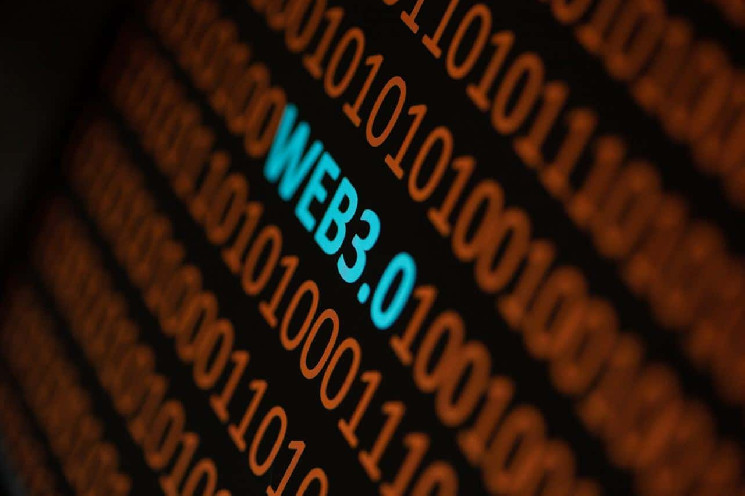On January 31, Andromeda unveiled its Web3-native operating system, the Andromeda Operating System (aOS). Designed to facilitate the rapid development and expansion of Web3, the aOS provides a comprehensive set of tools for makers and developers to build decentralized applications and services, according to the information shared with Finbold.
The aOS uses an intuitive, browser-based interface and is currently in the testnet phase, with plans for a mainnet release towards the end of Q1 2024.
Andromeda’s introduction of aOS is positioned to simplify the Web3 experience for users, facilitating the accelerated development of advanced multichain applications for developers.
The comprehensive platform enables the rapid creation of dApps in minutes, leveraging the aOS file system to provide immediate access and streamlined management of multiple Web3 assets.
aOS is Web3’s first operating system
aOS is the industry’s first native operating system for Web3, introducing a low-code App Builder platform designed to enable developers, regardless of experience, to effortlessly navigate the realm of blockchains and decentralized applications. The easy-to-use interface allows developers to efficiently build and deploy complex applications spanning multiple chains in significantly less time than traditional methods.
In addition to rapid development, aOS also provides greater control over the capabilities, costs and privacy aspects of each dApp, allowing developers to create resource-efficient applications while increasing user trust.
Complementing the App Builder is the Andromeda App Store, which provides access to a catalog of ready-made application templates and pre-built apps that can be branded and customized in minutes. The Andromeda App Store can be likened to a hub that encourages developer creativity while fostering a culture of collaboration.
Developers who create dApps using iOS can list them directly in the App Store to monetize their work when others use it. In this way, it promotes a dynamic and cooperative ecosystem that will accelerate Web3’s growth.
Various features of iOS
What sets AOS apart from other platforms are the innovative Andromeda Digital Objects (ADOs), created through the ADO Builder. Serving as foundational elements for advanced decentralized applications, ADOs present disruptive tools poised to redefine Web3 by significantly streamlining the creation and composition of dApps.
This innovation leads to a drastic reduction in development times, cutting the process from months to minutes. Developers can use the Andromeda Logic Library (ALL) to access a collective repository of ADOs and apps, allowing them to build more advanced applications significantly faster than building one from scratch.
For example, a developer looking to fund a new project by selling non-fungible tokens (NFTs) can easily use Andromeda’s pre-built crowdfunding platform available through the App Store.
The decentralized application (dApp) can be configured in minutes to manage various complexities associated with crowdsale, such as royalty management, tax considerations, on-demand mining and more. This feature greatly simplifies the development process, reducing technical barriers and often deterring projects from going this route.
A critical benefit of aOS is its universal compatibility, which facilitates the creation of applications that can be deployed on any blockchain network within the Cosmos ecosystem. Upcoming integrations with Landslide and Axelar will extend AOS interoperability to ecosystems such as Avalanche (AVAX) and Ethereum (ETH). By adopting the Inter-Blockchain Communication (IBC) standard, AOS applications can effortlessly extend their functionality across multiple interconnected chains.
AOS’s distinctive ability to interoperate with diverse networks, projects, oracles, and enterprise systems underscores the platform’s unparalleled versatility. This capability ensures a seamless flow of data and value across an expanding Web3 ecosystem.
aOS offers unique features to developers
Developers who adopt AOS in their development efforts are joining the inevitable trajectory toward a cross-chain and multichain future within Web3. The anticipation leading up to the mainnet launch, evidenced by the substantial demand for its native token, ANDR, reflects the high level of industry interest. Andromeda recently announced its inaugural token sale through Shade Protocol, a leading private decentralized finance (DeFi) platform within the Cosmos ecosystem.
In the 72 hours leading up to the listing, SHD’s value rose by more than 140%, driven by a wave of buyers looking to acquire the asset to obtain ANDR. There was overwhelming demand for the launch, which caused a temporary disruption to the Shade Protocol app.
Mant Hawkins, core contributor at Andromeda, said:
“Andromeda is the latest chapter in the long history of unexpected innovations that powerfully merge technology, design and functionality into something surprising that accelerates the adoption of a new industry. We see AOS as the new standard for web3, offering limitless possibilities for experienced builders, but inviting less experienced and web2 developers to join the movement with a NoCode/LowCode experience built for speed, creativity and fun. Come build with us!”
The successful sale of ANDR tokens marked its introduction to a wide audience and highlighted the project’s potential as a catalyst for creative freedom in the Web3 space. Through aOS, Andromeda not only facilitates a seamless multichain future, but also improves the ease, efficiency and speed of Web3 development, unlocking a multitude of possibilities for exploration.

